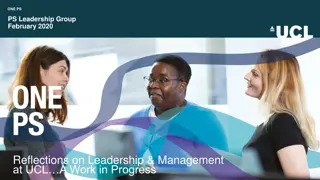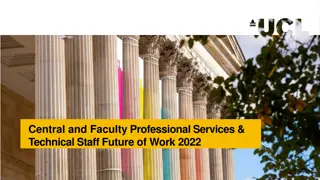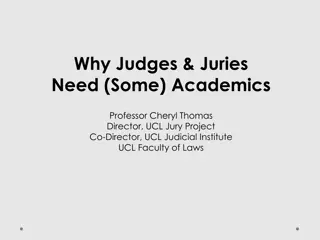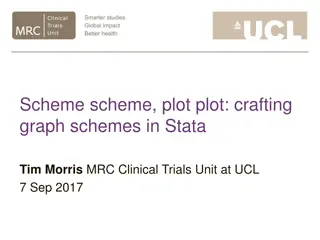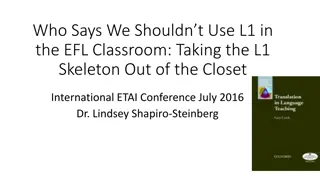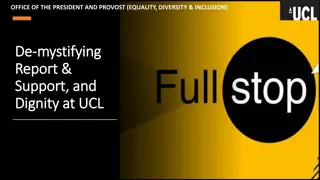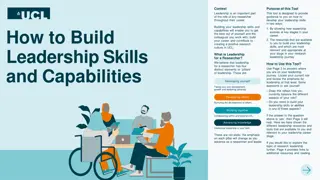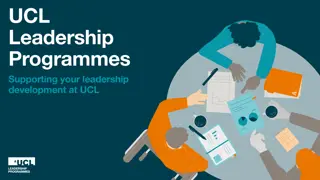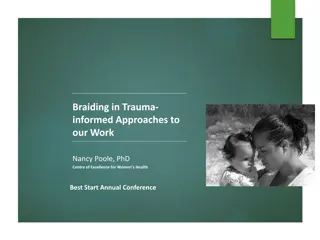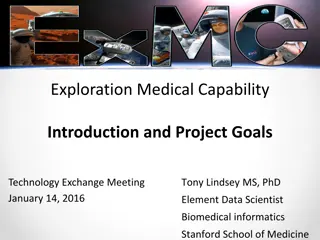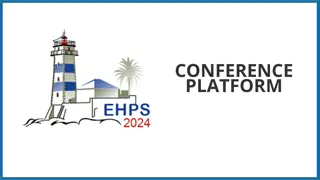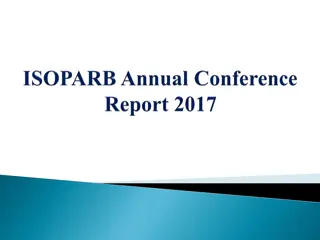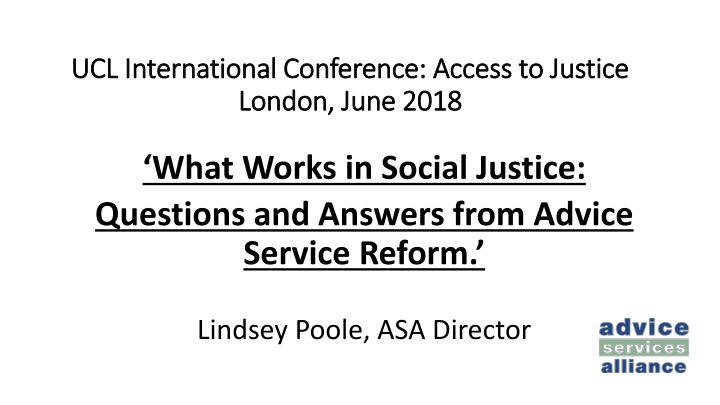
Access to Justice: What Works in Advice Services and Outcomes Measurement
Explore insights from the UCL International Conference on Access to Justice, focusing on the challenges and strategies in advice services and outcomes measurement, highlighting the importance of client-centered approaches and independence in the sector.
Uploaded on | 0 Views
Download Presentation

Please find below an Image/Link to download the presentation.
The content on the website is provided AS IS for your information and personal use only. It may not be sold, licensed, or shared on other websites without obtaining consent from the author. If you encounter any issues during the download, it is possible that the publisher has removed the file from their server.
You are allowed to download the files provided on this website for personal or commercial use, subject to the condition that they are used lawfully. All files are the property of their respective owners.
The content on the website is provided AS IS for your information and personal use only. It may not be sold, licensed, or shared on other websites without obtaining consent from the author.
E N D
Presentation Transcript
UCL International Conference: Access to Justice UCL International Conference: Access to Justice London, June 2018 London, June 2018 What Works in Social Justice: Questions and Answers from Advice Service Reform. Lindsey Poole, ASA Director
The What Works Story The What Works Story Robert Martinson 1927-1979 What Works in Juvenile Justice: Questions and answers from Prison Reform Michael Martinson the question was not meaningless, it was loaded
What works in advice services? What works in advice services? We don t really know, but can identify Drivers towards more outcomes measurement Problems with advice outcomes research Relationship between access to justice and outcomes Some answers for the sector and academics
Drivers of outcomes measurement Drivers of outcomes measurement Commissioning buys a product Accountability for public spending Government hostility/suspicion of voluntary sector Service redesign and shift in access Generates knowledge to support funding Practitioner curiosity
Problems with advice outcomes Problems with advice outcomes What outcomes to measure, what is positive? How to measure, valid and reliable tools When to measure to capture outcomes Attribution of outcome to advice Resources and skills required by services Perverse consequences of counting things
Access Access to to Justice Justice and and Outcomes Outcomes Treats the client as passive vessel for our wisdom Ignores brutal policies and appalling administration Good advice often preventative- nothing happened Assumes advice is purely instrumental Remember why we exist and who we exist for Threatens independence of the sector Take back control of the narrative
Access to Justice 1970s style Access to Justice 1970 s style
Answers Answers for the sector and academics for the sector and academics Large scale research on outcomes with robust methods (including control/comparison groups) Repeat Ipsos-MORI 2015 Research Demonstration projects Challenge funders and commissioners on use of outcomes Carefully consider value for the sector of small evaluations Monitor resources spent in delivering outcomes Sector and academics strengthen relationships
In an ideal world. In an ideal world . Large, robust research to evidence what works for whom and how Individual advice services all routinely collect: Local/client advice needs data Service level data- number of clients, medium, problems presented Client profile (to check that meets those with most need) Quality assurance processes including independent file reviews Dip sampling of cases and mapped against evidence base Routine sharing of research between sector and academia




